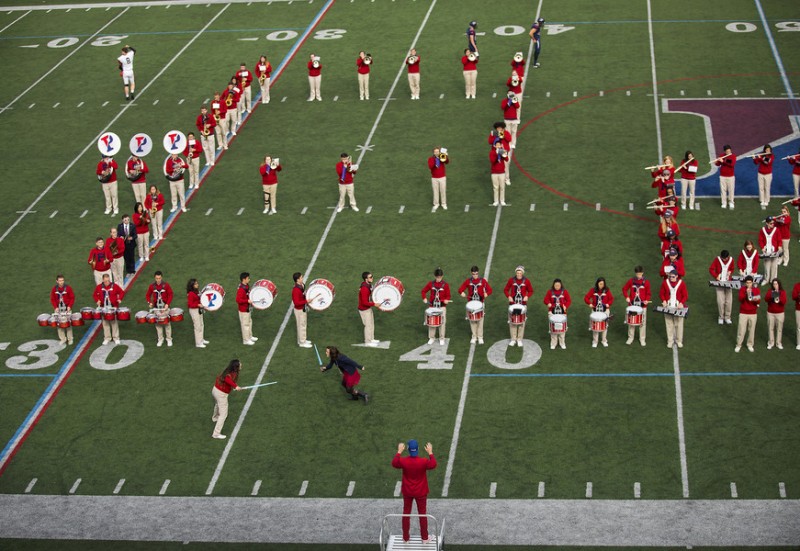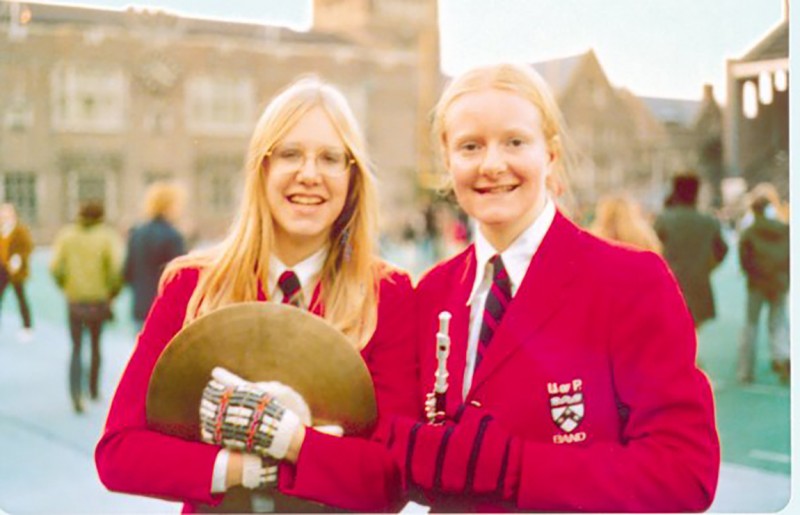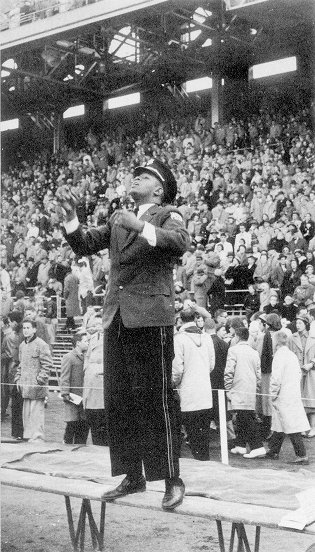Penn Band: Marching to the Beat for 120 Years

Photo by Eric Sucar
The Penn Band, one of the first collegiate marching bands in the country, began modestly in 1897 with just 27 volunteer musicians. The Penn Band quickly became a cornerstone of school spirit at athletic and campus functions at Penn. The Band’s first documented support of the football team was in 1898, as it greeted the team off the train after a game against the University of Chicago, and by 1900 the Band was an established part of the Franklin Field game-day experience. The Penn Band is also believed to be the first college band to travel to an away football game; that happened in 1901, when it traveled for Penn’s game at Harvard.
Today, the Band stands among one of the most active college bands in the country, performing over 100 times a year. Unlike many collegiate band programs, the Penn Band is still a volunteer organization—no scholarships, stipends or academic credits are offered to its members. Their membership comes from 30 US states and 12 countries. And more than 70% of their current members are STEM-related majors—there is only one music major in the whole group. It is one of the largest student-run organizations on campus.
On December 18, the band celebrated its 120th anniversary.

Photo by Eric Sucar
Sponsored by the Vice Provost’s Office for University Life, the Penn Band is a part of the Department of Athletics. Woven into the cultural “red and blue” fabric of Penn, the Band marks the highlights of the academic year from Convocation to Commencement and everything in between: Homecoming, Family Weekend, Alumni Weekend, football games, basketball games and other events.
On Monday nights, the Penn Band practices at the Platt Student Performing Arts House, a central hub that supports the performing arts at the University by providing a rehearsal space, a place to relax, socialize and generate innovative ideas for the next big show. They practice on Wednesday nights at Franklin Field during football season.
The organization has a rich performance history over the past 120 years. The Band was the last organization to be conducted by the great John Philip Sousa and among the first college bands to record with RCA Victor in 1926. The Penn Band was the first collegiate marching band to ever march in the Macy’s Day Parade. Past performances during the group’s storied past also include the Rose Bowl, the 1964 World’s Fair in New York, the Miss America Pageant Parade, at local schools, at the Christmas Village and the annual lighting of the Hanukkah Menorah in Center City Philadelphia, in Walt Disney World in Orlando, Florida and at festivals and parades.
For decades, the Penn Band was an all-male organization, and women were not allowed on Franklin Field—it was believed to be bad luck. In 1962, Louise Ehrlich became the first female band member to perform in the concert band. By 1968, nine women were members of the group. Despite changes seen at other universities nationwide, even female cheerleaders did not appear on the field until the late 1960s. In 1970, Lynne Leopold became the first female band member to step on Franklin Field. Shortly afterwards, women were allowed in the group, and the group’s first female president and vice-president (Peggy Schnarr and Lynne Leopold respectively) were elected in 1972. Today, women constitute more than half the membership of the organization.
The Band was also helped after the advent of the co-ed cheerleading show “The Quakerettes,” eight select women who marched with the band in parades, like the World’s Fair in 1964. That eventually led to co-ed cheerleaders later that decade.

Photo from the University of Pennsylvania Band Archives

Photos from the University of Pennsylvania Archives

James DePreist, who earned his BS in economics in 1958, and his MA in 1961 at Penn, was also a student conductor of the Penn Band. After receiving degrees from Penn’s Wharton School and Annenberg School of Communications, Mr. DePreist went on to become a world-renowned symphony conductor, shown here (above) leading the Band at halftime. Penn awarded him an honorary doctor of humane letters degree in 1971. The internationally acclaimed maestro received Penn’s first Creative Spirit Award in recognition of his artistic leadership and life-long commitment to the arts (Almanac November 17, 2009). As the nephew of the late Marian Anderson, he led efforts to raise money to establish the Marian Anderson Music Study Center at the Library (Almanac October 27, 1998).
